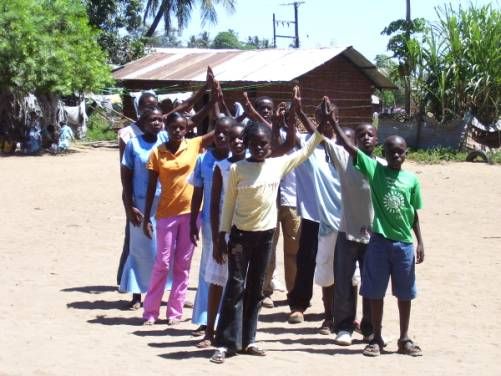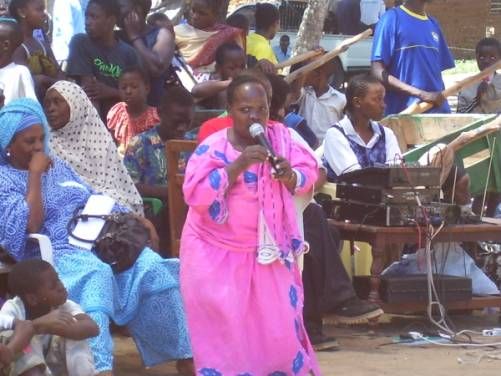|
16 DAYS OF ACTIVISM CAMPAIGN AGAINST GENDER BASED
VIOLENCEAT KADONGO GROUNDS, MISHOMORONI SLUMS
ON 2 ND DECEMBER 2008.
Introduction
This was one of CWIDís 16 Days activism programme, the activity was held at Kadongo
grounds in Mishomoroni Slums, the venue was significant because it is one of the places
in Coast Province where women and girls still need to be sensitized to recognize their
rights. Fortunately, a large crowd was that of the residents and it was our delight because
they were our target group.
Objectives.
CWIDís major objectives for the activity were
1. To raise awareness on the 16 days of activism because most of the people living
in the rural areas havenít had an opportunity to know about it and what it entails.
2. To link this yearís theme with the situation on the ground and to emphasize that
the moment the community will recognize that women rights are essential then
the whole community will be enjoying their rights.
3. To achieve our mission of reaching out to the rural and voiceless women and
children and empower them to know their rights.
The day was marked with plays, songs and poems all driving at this yearís theme
"Human Rights for Women Human Rights for All." VCT services was also offered by
Husiko La Pwani and people turned up in good numbers.
Among the main issues that arose in the forum were:
1. Cultural Practices.
Most of the African customary laws have been a major hindrance for the women and children
especially the girl child to attain their rights.
Women and children especially in the slums are violated because they are unaware of their rights,
even the people living in the rural communities abuse the womenís rights because they donít find
any importance in women enjoying their rights.
In Coast Province, culture and poverty are the major causes of GBV, the culture doesnít allow
women and girls to enjoy their rights, elders exploit the girl child and their women in the name of
culture. The girl child still does not have the opportunity to education and a right to expression.
Tourism has also been a main hindrance for the women and girls to enjoy their human rights, they
are exploited by tourists who visit the city in the name of tourism and in the end they fall victims of
prostitution and human trafficking.

Agape children
reciting a poem on
education rights
for the girl child
2. Poverty.
Most of the women
and girls whose
rights have been
violated have been
unable to present
their cases in court
and seek justice
because they cannot
afford the expenses
of the judicial
process to seek
justice for their
rights. Most of them
would rather spend
the money for the upkeep of their children or spend the time doing something that will benefit their families, some will not even go ahead to seek justice especially if the abuser is rich, because the rich have always been known to buy their freedom out of the court.
3. Disability
It also emerged that women and children are the most discriminated, our societies have still not
embraced the disabled people especially women and children as part of the community, people still
take advantage of them because they find them most vulnerable, in most case they end up being
raped, sodomized and called names and because they cannot fight back, they are forced to bear the
pain.
 Miss Rees Viregwa Miss Rees Viregwa
giving a speech on
how the rights of
disabled women
and children are
abused.
4. HIV/AIDS
This emerged as one
of the biggest
challenges women
face in the society,
women living with AIDS are at the verge of being discriminated and not fully accepted in the rural
set up where people are still not enlightened about living positively with AIDS.
Women are still ashamed to face their families because they are met with rejection and considered as a curse in the community.
Guest Speaker for the day was
1. Irene Randu Women Development
Other speakers included
1. Millicent Opar Husiko La Pwani
2. John Opindoh Agape Children
3. Rees Viregwa Disable Representative
4. Selemiah Mbewa Humanist
RECOMMENDATION:
This activity gave us the platform to address all these issues and we hope to have many opportunities
as such to continue sensitizing communities in rural areas to observe and respect the womenís rights
because only then will every human claim to be enjoying their rights.
|